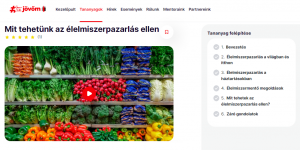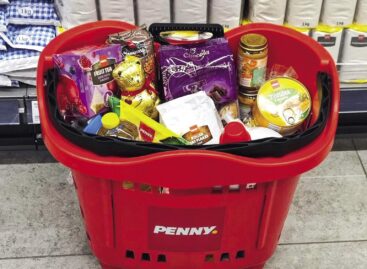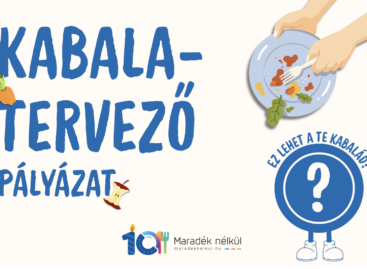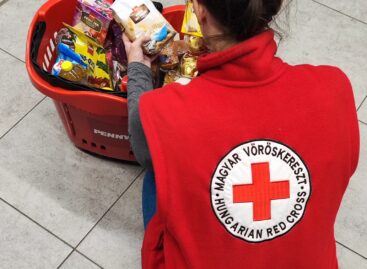Online learning material for reducing food waste
While food prices show a continuous increase, an average person in Hungary still produces nearly 65 kg of food waste at home every year. Among other things, this is what the new, jointly developed online curriculum of the Hungarian Food Bank Association and Coca-Cola Hungary’s #énvæstöm program draws attention to. The purpose of the educational material focusing on food waste, which is available for free on www.enjovom.hu, is to support the users of the site with various tips and tricks in preventing food waste, and in addition, it discusses in separate chapters which are the situations in life that most often lead to waste, and how to avoid them .

The purpose of the #énvæstöm program, launched in 2017, is primarily to support young people between the ages of 16 and 35 in finding a job on the labor market. The program supports participants in finding a job, choosing a career, changing careers or starting a business with self-knowledge and skill-building learning materials available free of charge on the website www.enjovom.hu, as well as by organizing small group personal workshops. Over the past years, the program’s target groups and, in parallel, its online learning materials have been continuously expanded: through its partners, it currently helps disadvantaged young people in addition to high school students, university students, expectant mothers, disabled job seekers and young people thinking about starting their own business with learning materials ranging from self-knowledge to basic legal knowledge. .
The curriculum, developed together with the Hungarian Food Bank Association, aims to draw attention to the importance of preventing food waste
At the same time, the #énjövőm program supports several target groups with personalized ideas to prevent food waste. In fact, 1.3 billion tons of unnecessary food is produced in the world every year. According to the Hungarian Food Bank Association, the amount of food waste produced by households can be reduced by up to 50 percent, i.e. by more than 30 kilograms per person, with simple solutions and a community approach, thus significantly contributing to the creation of a more sustainable environment.
After a general introductory section, the course material is divided into five smaller chapters, including special tips for the following situations:
• what can a student who lives in a sublet or dormitory and does not know how to cook do to combat food waste,
• how a parent of a large household with small children can buy and plan in advance,
• what can an employee do if it is important for him to avoid food waste at work,
• as an employer can encourage his employees to avoid waste,
• and how a small catering business can reduce food waste.
In addition to describing the most common life situations and errors that lead to food waste, the chapters present plenty of opportunities for creative use of food, composting of the generated waste, introduction of economical solutions and how we can encourage others to avoid waste. The creators of the curriculum also support those who want to learn with free downloadable supplementary materials.
The new course material is available free of charge to anyone after registration by clicking on the following link: https://enjovom.hu/tananyogs/mit-tehetunk-az-elelmiszerpazarlas-ellen
More information about the #énvékösm program is available by clicking on the link below: https://enjovom.hu/rolunk
Related news
Nébih’s 10-year-old Without a Trace program announces mascot design competition
🎧 Hallgasd a cikket: Lejátszás Szünet Folytatás Leállítás Nyelv: Auto…
Read more >Related news
Nestlé to sell remaining ice-cream assets but commits to Froneri venture
🎧 Hallgasd a cikket: Lejátszás Szünet Folytatás Leállítás Nyelv: Auto…
Read more >Lidl guarantees fairer prices for cocoa farmers
🎧 Hallgasd a cikket: Lejátszás Szünet Folytatás Leállítás Nyelv: Auto…
Read more >









